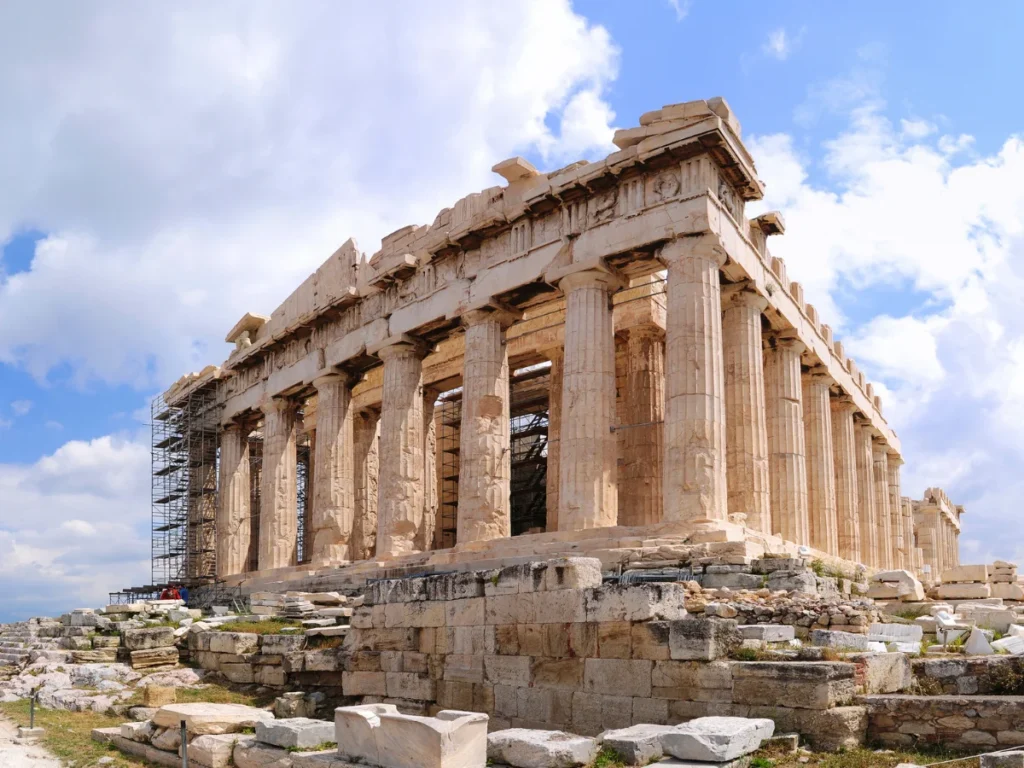Courts (Dikasteria) in Athenian Democracy
Courts (Dikasteria) in Athenian Democracy were vital institutions that empowered citizens to participate actively in legal matters. Jurors, randomly selected from the populace, resolved various cases, reinforcing the democratic principle of equality before the law. Despite challenges and criticisms, their enduring legacy influenced modern legal systems, emphasizing citizen engagement and justice.

Courts (Dikasteria) in Athenian Democracy
In the vibrant democratic society of ancient Athens, the Dikasteria, or courts, held a crucial role in upholding justice and promoting civic engagement. These courts, a fundamental component of Athenian democracy, played a pivotal role in maintaining order, resolving disputes, and ensuring fairness within the city-state.
Structure of the Dikasteria
The Dikasteria were comprised of a large number of citizens who were selected by lot to serve as jurors in legal proceedings. This random selection ensured a degree of impartiality and reduced the influence of wealth or status in legal matters. Jurors were chosen from a pool of eligible citizens, often numbering in the hundreds, to participate in specific trials or deliberations.
Functioning of the Dikasteria
The Dikasteria presided over a wide range of cases, including civil, criminal, and political matters. Their jurisdiction extended to issues such as contract disputes, property rights, homicide trials, and impeachments of public officials. The democratic principle of “isonomia,” meaning equality before the law, was upheld by the Dikasteria, as jurors had the power to make decisions that affected the lives and fortunes of their fellow citizens.
Significance in Athenian Democracy
The Dikasteria served as a symbol of the democratic values of Athens. They empowered ordinary citizens to actively participate in the legal process, reinforcing the idea that all citizens were equal under the law. This involvement instilled a sense of civic duty and responsibility. Fostering a strong civic identity among the populace.
Challenges and Criticisms
While the Dikasteria were a hallmark of Athenian democracy, they were not without challenges and criticisms. Some argued that the system made justice arbitrary, as decisions were often influenced by the persuasive skills of litigants or the emotions of jurors. Additionally, the requirement of serving as a juror could be burdensome for citizens, impacting their ability to work and earn a living.
Legacy and Influence
The legacy of the Dikasteria in the history of jurisprudence and democratic governance is profound. The concept of trial by jury, rooted in Athenian democracy, has endured through the ages and continues to be a cornerstone of legal systems in many countries worldwide.
In conclusion, the Dikasteria were the embodiment of democratic ideals in ancient Athens. These courts promoted civic participation, upheld the rule of law, and ensured the equal treatment of citizens. They faced challenges and criticisms. However their enduring legacy has left an indelible mark on the history of democracy and legal systems. Serving as a testament to the enduring power of citizen engagement and justice.
The creation of demes
Cleisthenes’ reforms in Athens centered on demes. They transformed politics drastically. Demes divided the populace into smaller units. Each had its own identity. Citizens belonged to demes based on residence. This system decentralized power. It shifted focus from aristocratic clans. People became citizens of Athens first. This fostered a sense of unity. It promoted broader participation in governance. Demes laid the groundwork for democracy. They empowered ordinary citizens. Cleisthenes’ legacy endures in democratic principles. His reforms shaped the course of history.
